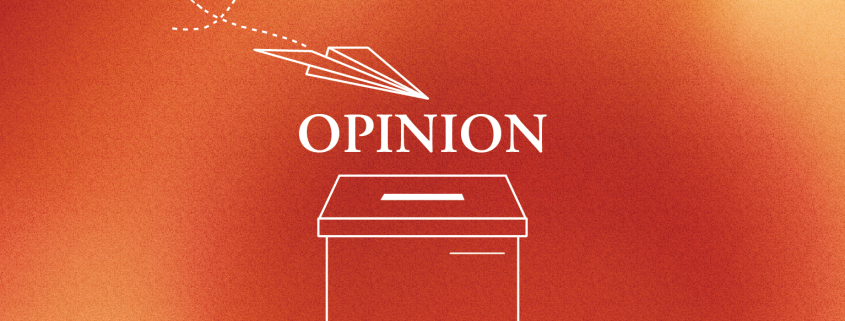The troubles of indecision in a decisive world
Every single moment of our lives is controlled by our decision-making. Choices are compounding — they pile on top of each other, creating a new stream of never-ending options in their wake. The sheer volume of decisions we make every day is nearly incomprehensible — but the American Medical Association estimates that number to be around 35,000.
With each choice to be made, capacity for decision-making wanes. Decision fatigue, a phenomenon described by doctors as an amalgamation of stress and time, which burdens decision-makers, can drive burnout and brain fog. That’s why notable figures like Steve Jobs and Barack Obama have been known to wear the same outfits every day: to save their decision-making energy for more pressing tasks.
But what happens when you can’t make decisions at all? If you’re like me, some of these experiences might seem familiar: never being able to decide what restaurant to go to, searching up menus in advance and the all-too-familiar, “I don’t care, pick whatever you want!” Not to mention the bigger decisions, stretched out over weeks and looming over everything you do, leaving you beyond frustrated and filled with dread over finally having to choose. Indecisiveness doesn’t apply to every decision I make in my life, but when it does, it’s hard to overcome. It’s led me to procrastinate, stress and doubt myself.
I have a deep fear of regret. When there are both myriads of possibilities and a lack of clarity, the future is scary. Too often have I weighed choices, trying to foresee different outcomes, and found myself still feeling lost. It’s all too easy to question my own decision-making, especially when my intuition and logic clash. Indecisiveness is a vicious cycle, with each decision piling on further over-thinking and unease.
To a degree, however, I would say that ambivalence and a bit of indecisiveness aren’t wholly bad traits. Indecision doesn’t mean that you’re bound to make poor decisions, and research agrees.
In a study conducted by researchers at Cardiff University comparing action-oriented (decisive and flexible) individuals to state-oriented (indecisive and emotionally-focused) individuals, groupings that were determined using the Action Control Scale, found that the two groups showed no difference in accuracy nor speed in cognitive experiments. The only difference was accounted for by their differing metacognitive biases — their level of confidence in their decisions. Emotional ambivalence can also increase an individual’s open-mindedness to alternative views.
Being indecisive means you can deeply consider and identify with both sides of an argument, and develop nuanced perspectives. You’re constantly asking questions, looking to gather all the information possible and considering a number of paths forward. You can resonate with the opinions of others easily.
Ambivalence can be a strength, to be sure. I consider alternative perspectives on different issues in the same way I exhaust all possible options when I’m making a decision in my own life. But caring about every outcome and every view is draining; it’s hard to embrace a trait that seems to only be harmful. Decision-making piles on stress, and while it may not be my biggest problem, it both aggregates and aggravates existing stressors. Being perpetually forward-thinking and consequence-oriented is draining.
Here’s a small comfort: You’re never going to be able to predict the future. So for any decision that seems bad in hindsight? There’s no way to have known it was going to happen. Over-thinking is brutal and makes decision-making harder than it already is. Everything in life is so variable and unpredictable — let’s not beat ourselves up over things we can’t control. So here’s my antidote to indecision: Live life without regrets.
Okay, easier said than done. So while I don’t have a magic cure for indecisiveness, I do think that we should stop thinking of it as a flaw. When it comes down to it, I’m ambivalent about being ambivalent. I don’t know whether I think of it as a strength or a burden. And that’s okay too. Not every question needs an answer; not every decision is black and white. Go easy on yourself: You’ll figure it out. If there’s one thing that I’m absolutely sure of, it’s that.

